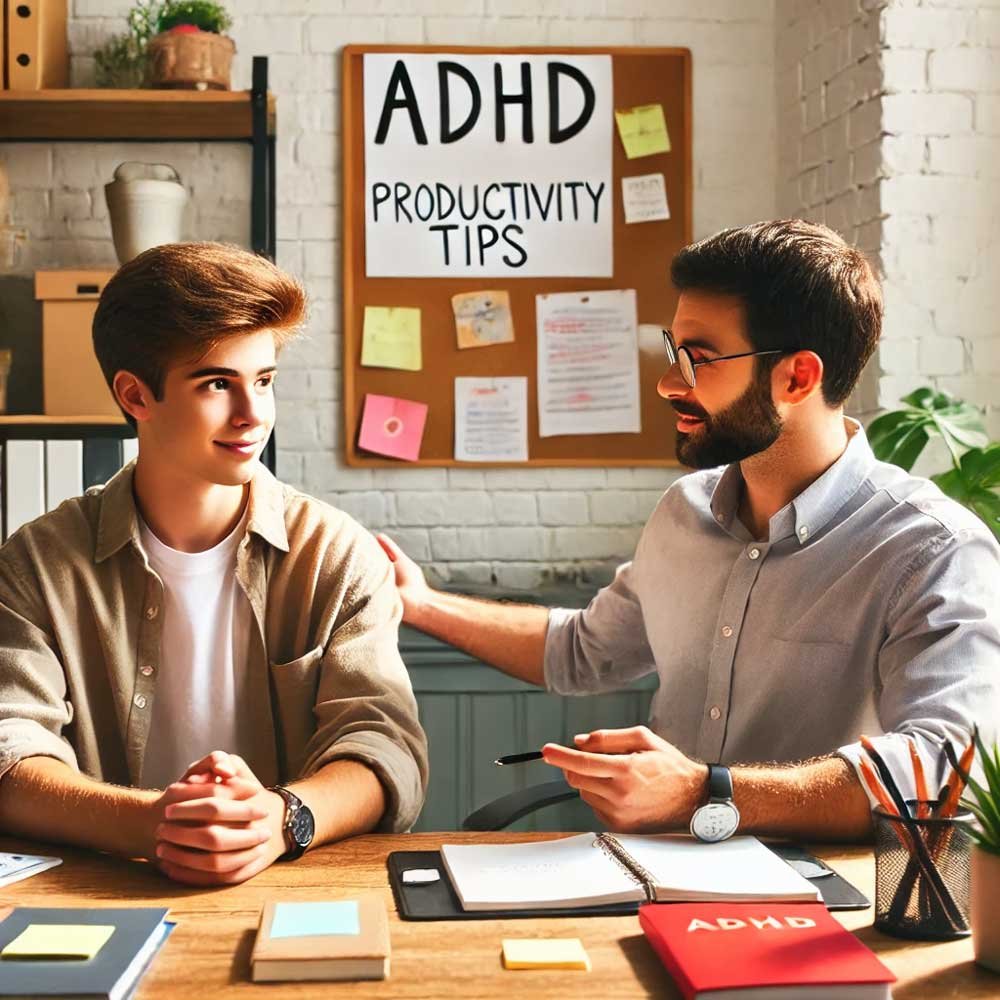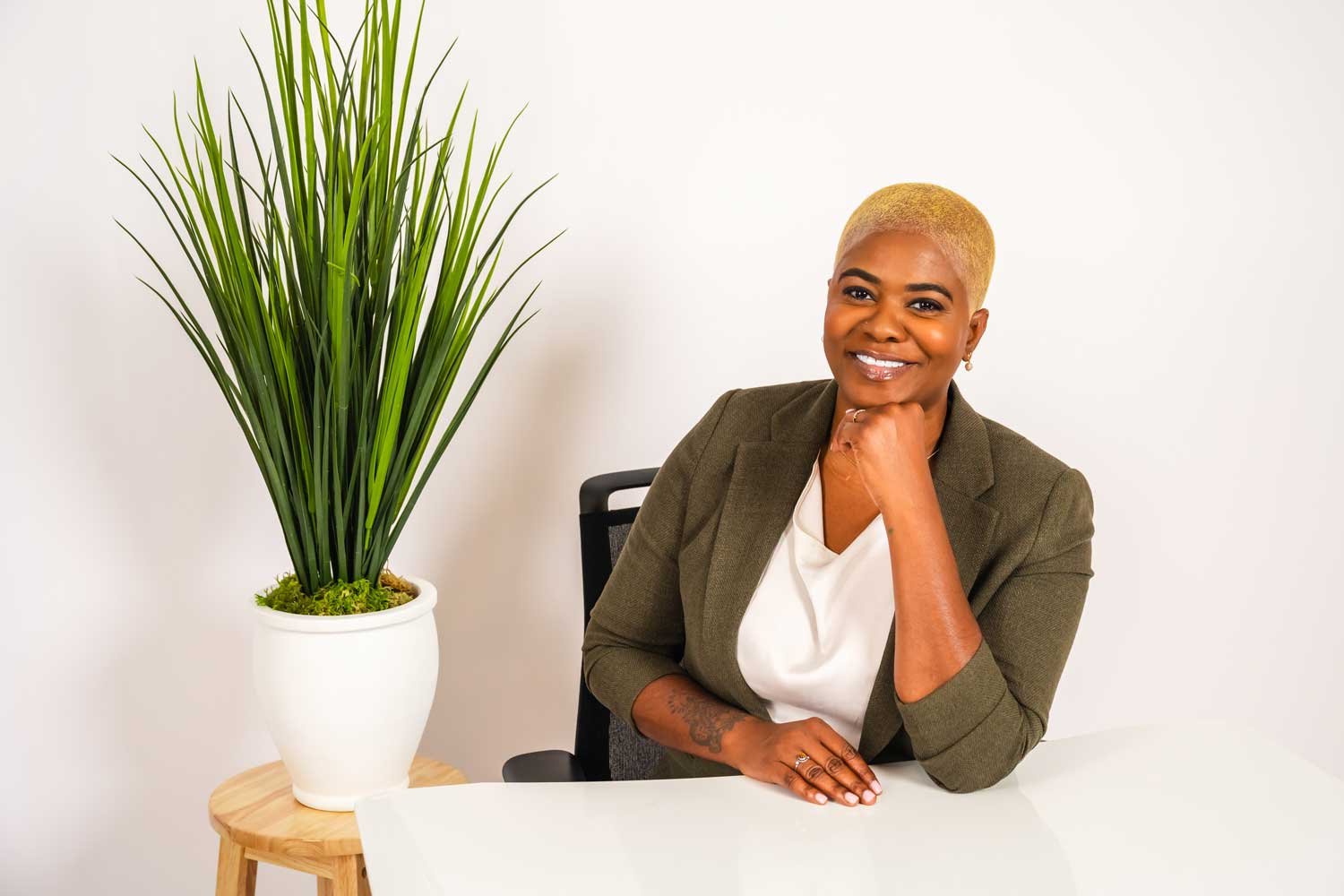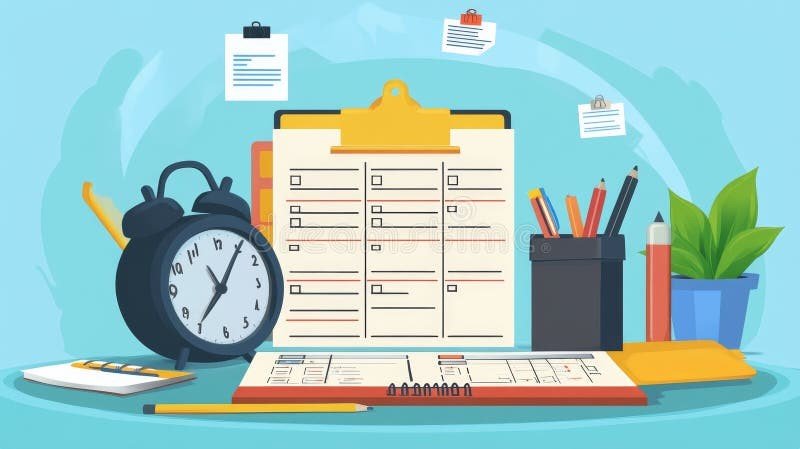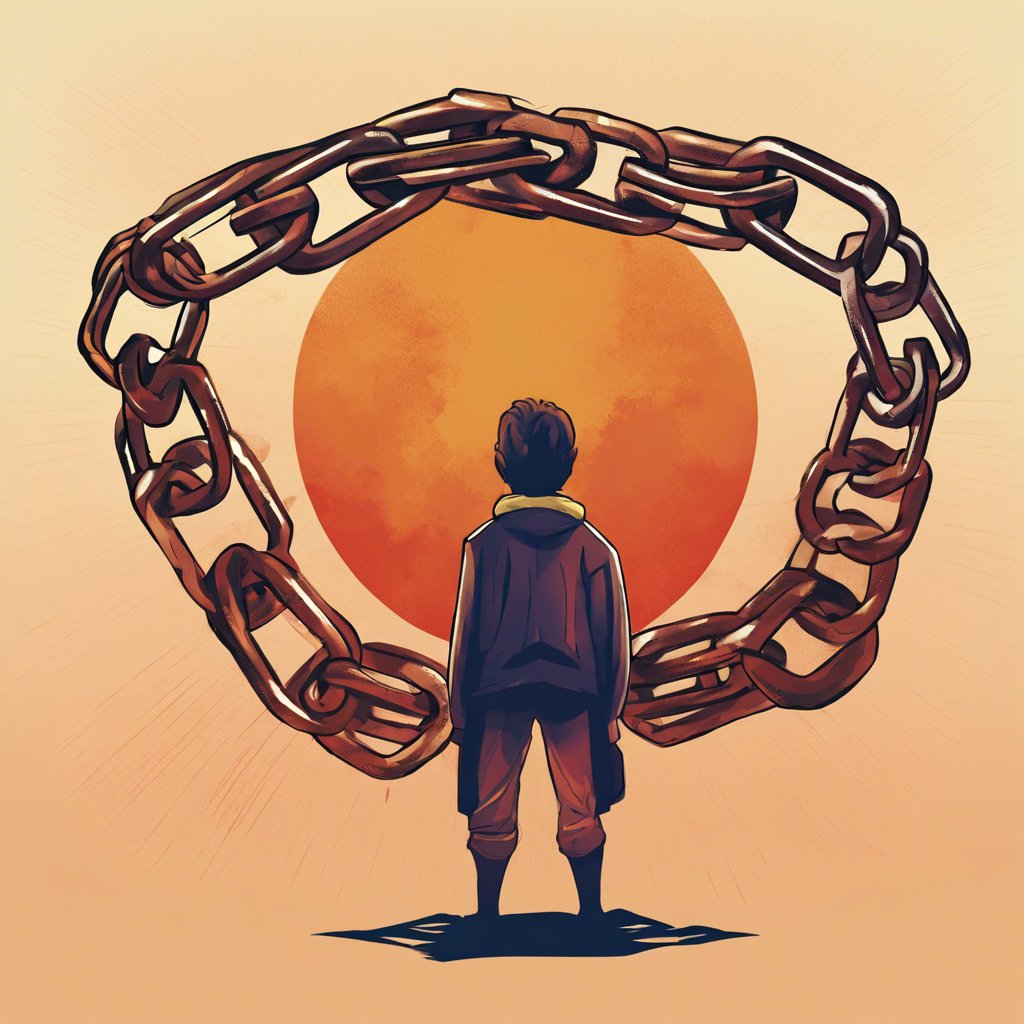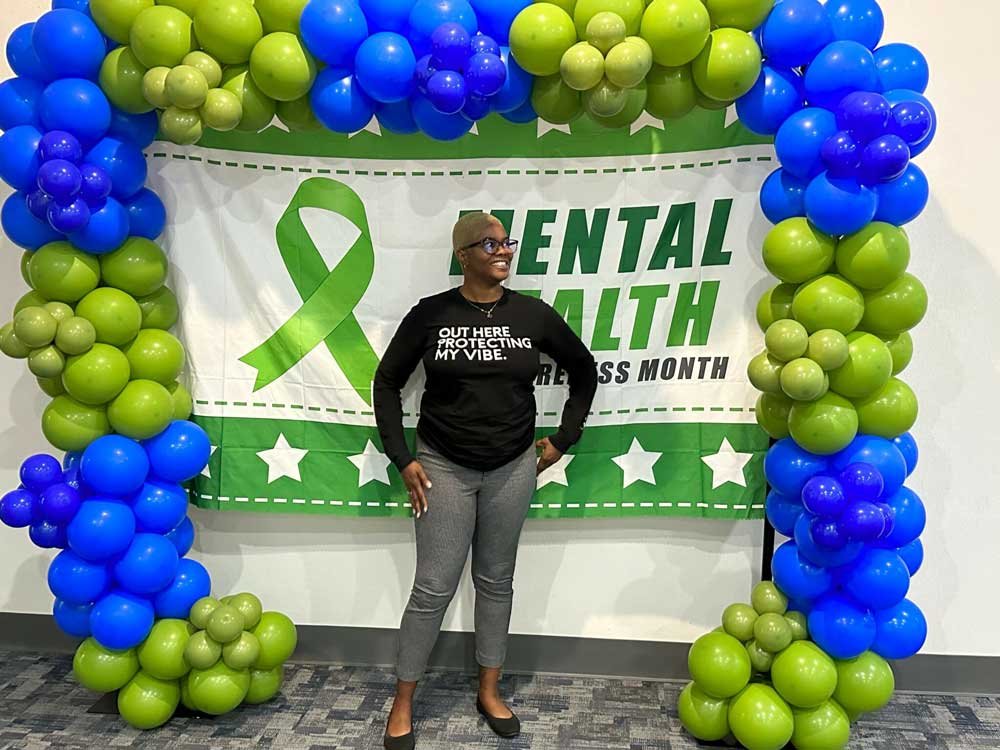
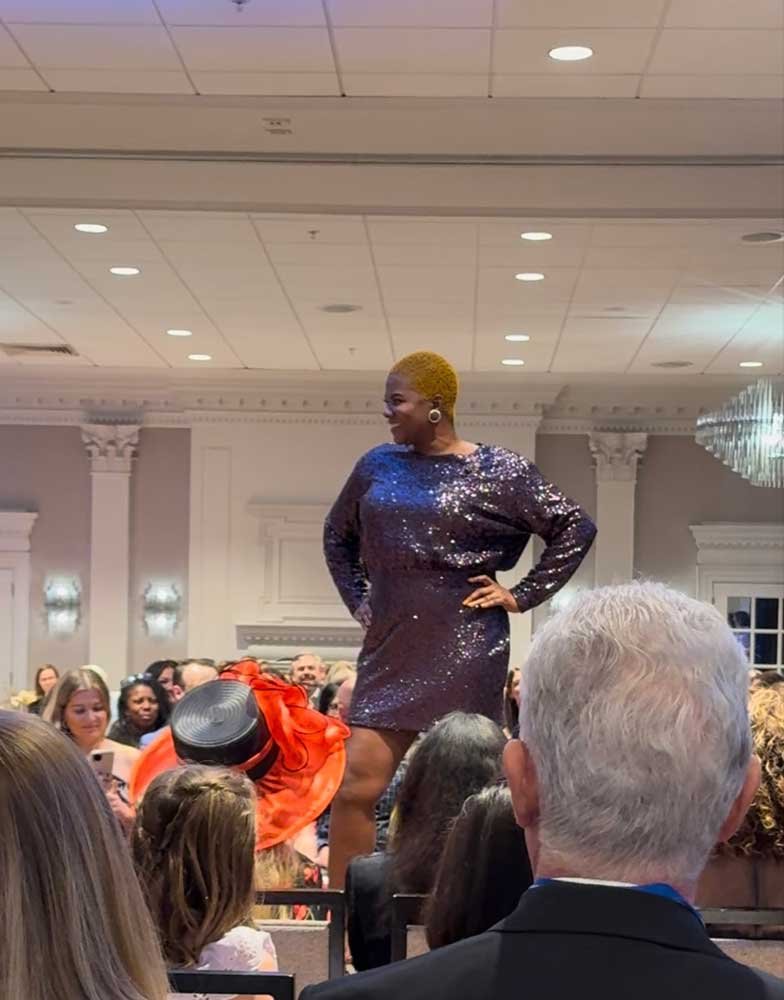
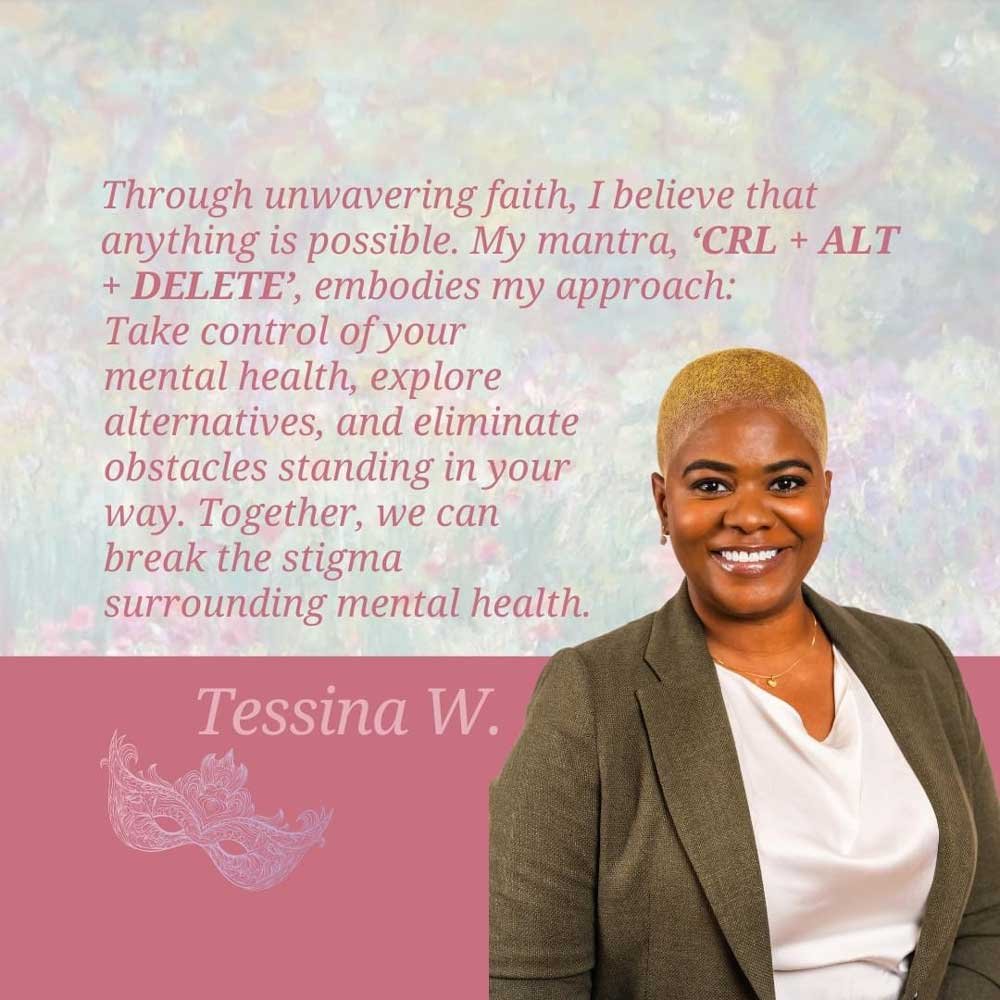
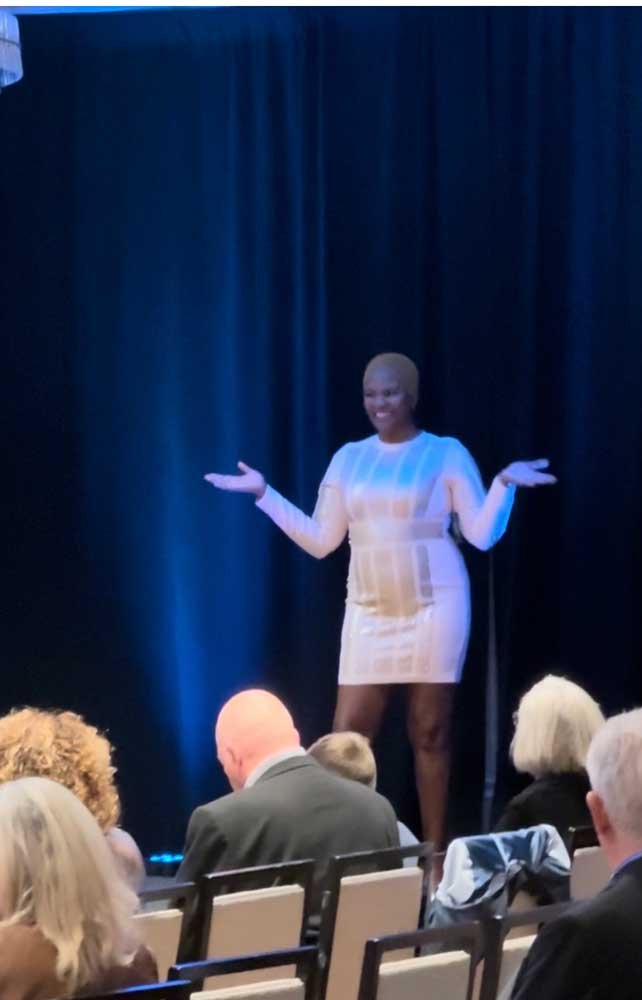

Image Credits
The three professional photos was taken by Tyiesha Ford, owner of Fullness of Joy Photography. All others of my personal device.
Your blog category
When you have attention deficit hyperactivity disorder (ADHD), everyday tasks can feel like an uphill battle. Feeling confused and overloaded is a common result of fighting an uphill battle with concentration, time management, and organization. But suppose there was a way to transform these difficulties into chances for self-improvement. Therein lies the value of an ADHD coach.
Individuals with ADHD can benefit greatly from ADHD coaching, which provides a nurturing and enabling environment where they can not only manage but flourish. This post will enable anyone who is living with ADHD, has a loved one who does, or is fighting for mental health awareness to comprehend the tremendous impact an ADHD coach can have on people’s life by encouraging development, providing concrete tools, and promoting a feeling of agency.
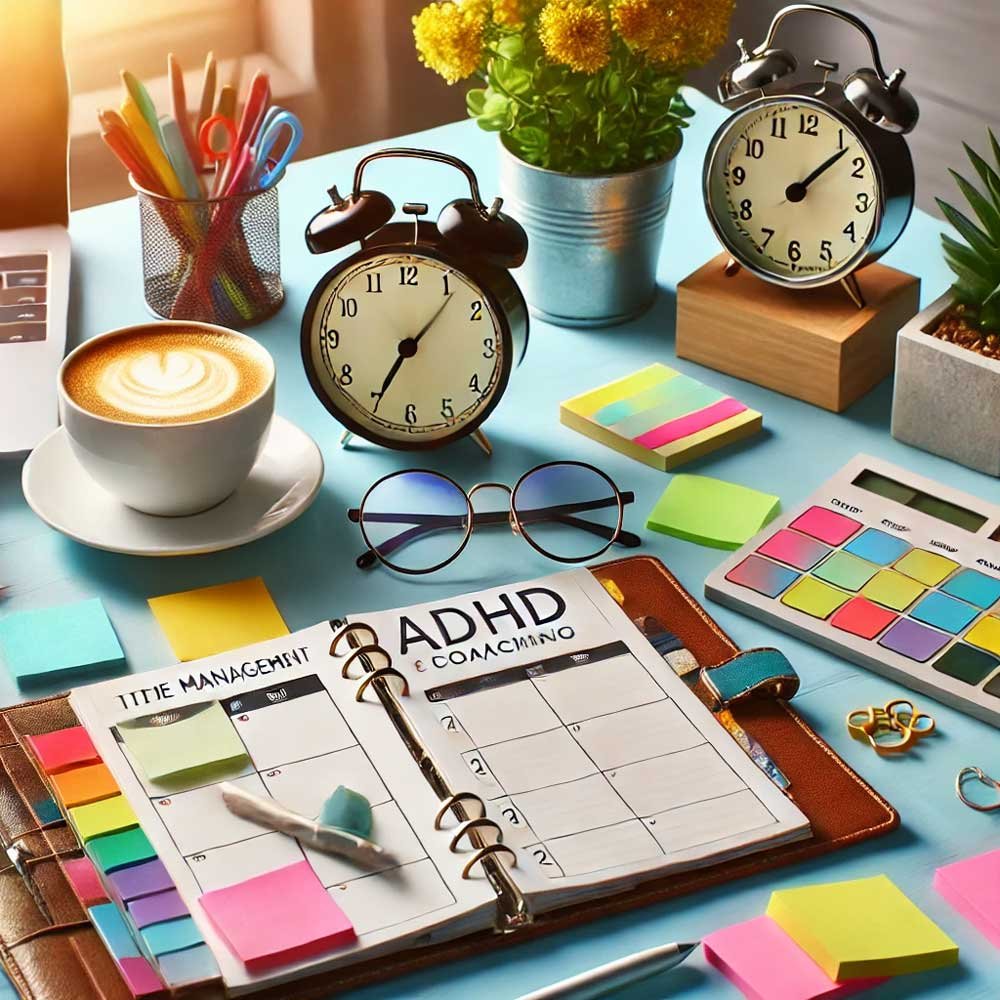
A coach for attention deficit hyperactivity disorder (ADHD) helps people overcome the disorder’s specific difficulties by focusing on their strengths and achieving their personal objectives. In contrast to more conventional forms of treatment, ADHD coaching encourages clients to take responsibility for their actions, finds practical answers to everyday challenges, and ultimately realizes their full potential.
With the help of ADHD coaching, individuals can develop practical skills for long-term personal improvement, whether it’s in the areas of time management, job, or marital harmony. The goal is to help you live a fuller, more empowered life by utilizing your unique qualities, not merely to manage ADHD.
Having a coach who specializes in ADHD can help with a lot more than just getting your life in order. It offers a comprehensive strategy for personal growth that permeates all facets of existence.
Both ADHD and its effective treatments are not a one-size-fits-all affair. Finding the right tools to support your daily goals, developing efficient routines, or breaking things into manageable steps are all examples of how a qualified ADHD coach may help you identify techniques specific to your life.
Inattentional ADHD is associated with a lack of awareness of time and disorderly time management. Get your life in order by working with a coach who can teach you time-awareness strategies and organizing systems. Envision yourself finishing the day with a smug feeling of satisfaction as you confidently cross items off your list.
Feelings of shame, remorse, or frustration are common among people with ADHD. Working with an ADHD coach can help you become more self-aware, compassionate, and resilient. They make it easy for you to go through your feelings and make progress in a nonjudgmental environment.
Relationships can be tested when one partner has difficulty expressing themselves or controlling their emotions. Whether you struggle with adhering to social norms, communicating your needs, or building strong relationships with loved ones or coworkers, ADHD coaching can provide you with the skills you need to better your social interactions.
Juggling a million ideas at once is a common symptom of attention deficit hyperactivity disorder (ADHD). A coach is someone who checks in with you on a regular basis to make sure you’re on track, holds you accountable when necessary, and celebrates your successes with you.

Adrian began working with Rooz, an ADHD coach at Heal & Thrive, when he was a high school senior and struggling to find his footing. His self-doubt stemmed from his ADHD, which he believed prevented him from pursuing a career in mechanical engineering. But Rooz encouraged him to see these destructive habits of thinking and pointed him in the direction of a trade school with more practical instruction that would work better with his learning style.
Now Adrian is doing great. “Rooz really went above and beyond in helping me manage my ADHD. He also showed me how to stop making excuses, focus on what I do well, and have faith in myself,” he added. It had a profound impact on the course of my life.
Rooz was contacted by Adriana in an effort to assist her kid in coping with the challenges posed by ADHD. On the other hand, she discovered strength for herself in the process.
I was able to better understand my son’s ADHD and its effects on our family dynamic thanks to the insights provided by Rooz, who did more than simply address my son’s issues. Both of us have been profoundly impacted by his guidance.
Amy was lost and confused after she lost her job as a teacher.
“Traditional therapy left me feeling heard but not helped,” according to her. “On the other hand, Rooz’s coaching was new. I was able to take decisive action after hearing his advise and implementing his tactics. I’m able to handle the stresses of daily life and my relationships in ways I never imagined before.
The dynamics within Anya’s family had been tested by her living with ADHD. However, she was able to better control her emotions and establish more constructive domestic interactions as a result of her coaching sessions with Rooz.
“With Rooz’s advice, I was able to maintain my composure in the face of mayhem and figure out how to set up functional processes for my family. Our relationships have undergone remarkable transformations.
Christopher found it extremely challenging to manage his ADHD alongside his demanding profession and family life.
“The accountability Rooz provided helped me align my goals and manage responsibilities,” he explained. How I deal with problems at work and in my personal life have been changed by his practical methods. I’ve never felt more focused and less stressed.
For those who are unfamiliar, the usual progression of ADHD coaching is as follows:
Step 1: Establish Objectives and Obstacles
When you work with a coach to establish objectives, they will assist you in identifying certain obstacles. Anything from enhanced concentration and time management to deeper connections with loved ones or a promotion at work can fall under this category.
Step 2: Create Individualized Plans
Working in tandem, you will develop strategies that play to your own strengths. You may easily implement these tactics into your regular routines because they are practical, flexible, and straightforward.
Step 3: Taking Responsibility and Having Backup
To track development, make course corrections, and maintain enthusiasm, the coach schedules frequent check-ins. They act as a reassuring mentor who keeps you motivated.
Step 4: Rejoice in Your Progress
In ADHD coaching, it’s important to remember to celebrate both the major and little victories along the way. Confidence, resilience, and a feeling of agency are fostered through this kind of positive reinforcement, which in turn encourages ongoing development.
You may find the missing piece to your personal growth journey through coaching if ADHD has left you feeling stuck or misunderstood. Envision a world where your to-do list isn’t so daunting or where you can accept, without shame, that ADHD is only a component of your individual brain chemistry and not who you are.
Are you on the fence about whether or not to get ADHD coaching? Find out whether you’re ready to coach by taking this quick quiz. Take this brief quiz to learn more about your struggles and how coaching might benefit you.

Although there are certain difficulties associated with living with ADHD, there is also great potential for success when the correct resources and support are in place. With the support of an ADHD coach, you may realize your full potential by learning to deal with challenges, focusing on what you do well, and creating a life you love.
Are you prepared to discover your greatest self? For more information on how Heal and Thrive Coaching’s individualized ADHD programs can improve your quality of life, contact us now.
Navigating ADHD and mental health challenges can feel isolating, but the right support can make all the difference. In this powerful personal story, Tessina S. Williams, a grants and operations professional, shares how coaching with Rooz Khosh of Heal and Thrive Psychotherapy & Coaching played a crucial role in managing ADHD, breaking unhelpful patterns, and fostering personal growth. From therapy to community support, she opens up about the strategies that helped her transform her life.
Read on to learn how expert coaching and mental wellness support can help you thrive!
We had the good fortune of connecting with Tessina S. Williams and we’ve shared our conversation below.
Hi Tessina S., any advice for those thinking about whether to keep going or to give up?
I believe it’s important to be aware of both your inner compass and the environment around you’re in. For me, this starts with clarity—asking myself whether the goal is truly aligned with my values, vision, and the person I am becoming. If the answer is yes, that alignment provides a strong foundation to keep pushing forward, even through challenges. However, if it no longer resonates or feels like it’s draining more than it’s giving, that’s often a sign to pause and re-evaluate.
Next, I look at solid progress, not just in terms of results but in growth. Is this journey teaching me, stretching me, and pushing me closer to a more refined version of myself? Even the small signs of growth are powerful indicators that the path may still be right. If, instead, it’s only bringing stagnation and frustration without growth or purpose, it might be time to reconsider the investment.
Lastly, I remember that letting go isn’t the same as giving up. Sometimes, releasing a path that’s no longer serving us is a step forward toward something better. In short, knowing when to keep going or to give up comes down to listening to your intuition, measuring your progress, and trusting that every step—forward or away—leads you closer to where you’re meant to be.
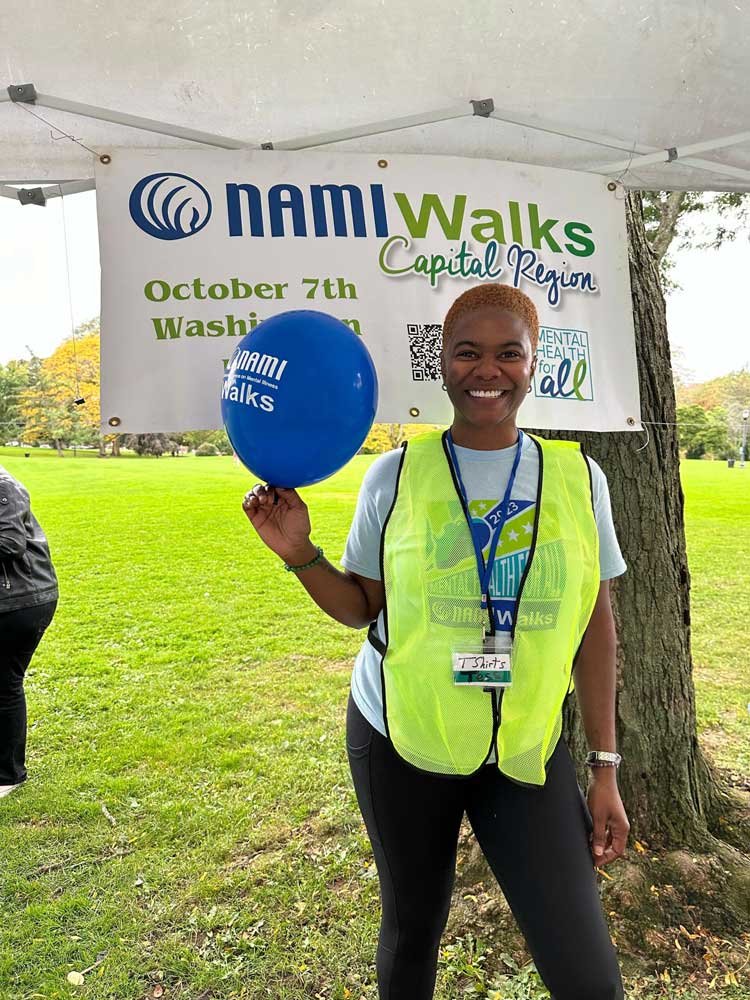
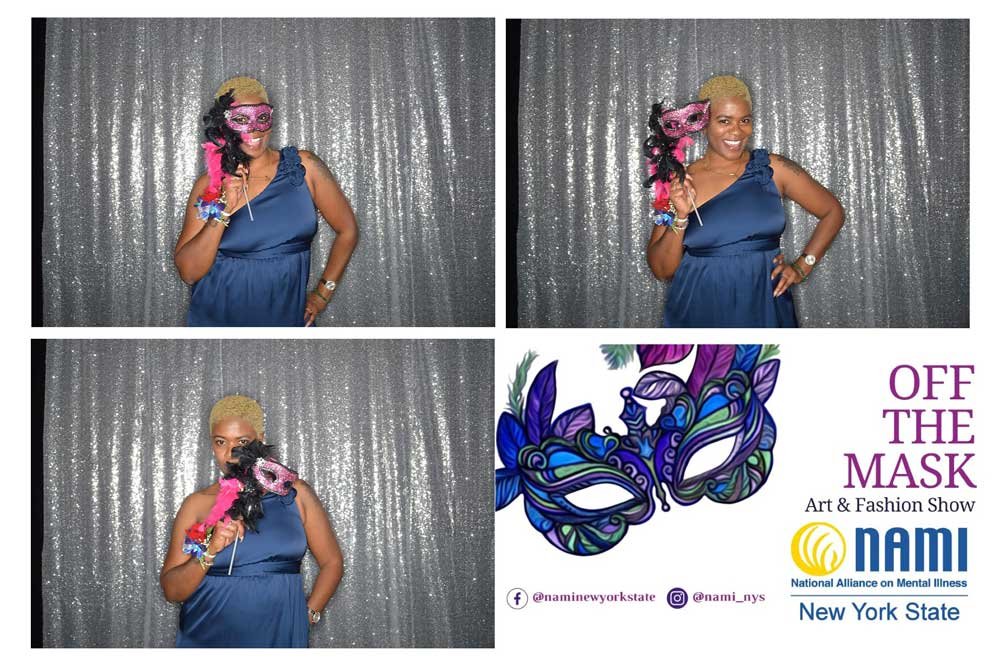
Alright, so let’s move onto what keeps you busy professionally?
My career journey has been one of resilience, vision, and purpose, defined by a commitment to creating impact and nurturing growth in myself and those around me. As a Grants Management Consultant and Operations Leader, I’ve dedicated over 15 years to supporting government-funded disaster recovery programs—especially in high-stakes fields like Hazard Mitigation, Public Assistance and Emergency Rental Assistance. I lead with an understanding that every project I touch directly affects people’s lives, which is what drives me to deliver solutions that are strategic, efficient, and compassionate.
What sets me apart is my ability to bring structure and vision to complex, dynamic environments. I create spaces where teams feel empowered and valued, and I find ways to align processes with both organizational goals and the well-being of the people involved. I’ve learned that leadership isn’t about control; it’s about understanding, guiding, and inspiring growth in others.
The journey hasn’t been easy. Breaking into a male-dominated industry with the added layer of managing Adult ADHD has meant facing unique challenges. Early on, I encountered situations that tested my confidence, but I adapted by leaning on my skills, seeking out mentorship, and adopting a mindset of continuous self-improvement. Therapy, professional coaching, and ongoing personal development have been key in helping me refine my approach, face imposter syndrome, and embrace my unique perspective as a strength.
One of the most valuable lessons I’ve learned is that success is built on authenticity and perseverance. I’ve also come to understand the power of giving back, which is why I’m passionate about mental health advocacy through my work with NAMI and my mentorship program, which is in development. This program will allow me to share my experiences, foster empowerment, and offer others the tools to navigate their own journeys.
Ultimately, my brand and story are about resilience, purpose, and lifting others up. I want the world to know that challenges can be powerful teachers and that we all have the capacity to turn trials into triumphs. I’m here to help others find that strength within themselves, just as I have.
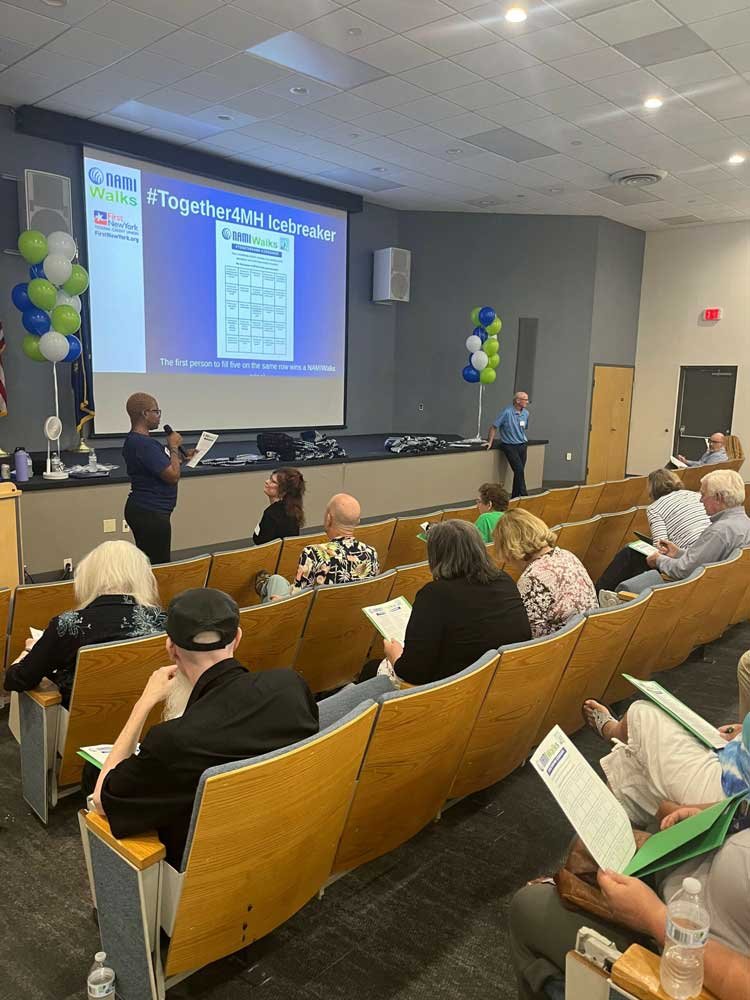
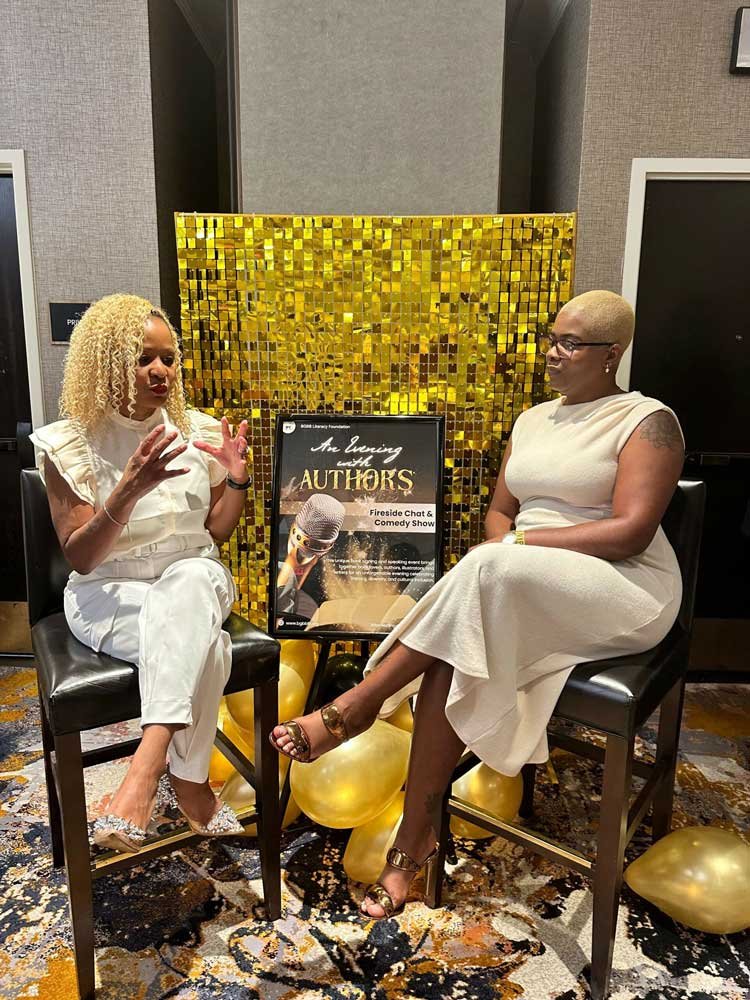
Any places to eat or things to do that you can share with our readers? If they have a friend visiting town, what are some spots they could take them to?
Okay now. I am a New Orleans native, born and raised, so you know, I am a natural foodie. My bestie and I love to dine and be tourists wherever we go. So here’s my itinerary:
Day 1: Albany’s Best
Breakfast: Iron Gate Cafe
Activities: New York State Capitol tour, Albany Institute of History & Art
Dinner & Drinks: TORO (Mexican Cuisine)
Day 2: Riverfront Vibes
Breakfast: Stacks Espresso Bar
Activities: Walk along Albany Riverfront Park; enjoy a Hudson river cruise depending on the season
Dinner: Albany Ale & Oyster (I love their roasted oysters!)
Day 3: Day Trip to Saratoga Springs
Activities: Explore Saratoga Spa State Park, and the Saratoga Race Course (depending on the season)
Dinner: Carson’s Woodside Tavern – enjoy the view of overlooking Saratoga Lake and the Vermont Mountains
Day 4: Adirondack Adventure in Lake George
Activity: Hike Prospect Mountain, picnic by the lake, browse Lake George Village
Dinner: Lark Street Tavern in Albany for a relaxed evening
Day 5: Troy Waterfront Farmers Market
Morning: Brunch at The Breakfast Nook
Activity: Take a nice walk through downtown Troy
Dinner: The Roosevelt Room
Day 6: Albany Wrap-Up
Breakfast & Stroll: Café Madison, then Washington Park
Afternoon Hike: Albany Pine Bush Preserve
Farewell Dinner: Boil Shack
Day 7: We rest at home with wine while preparing dinner with 90s R&B going.

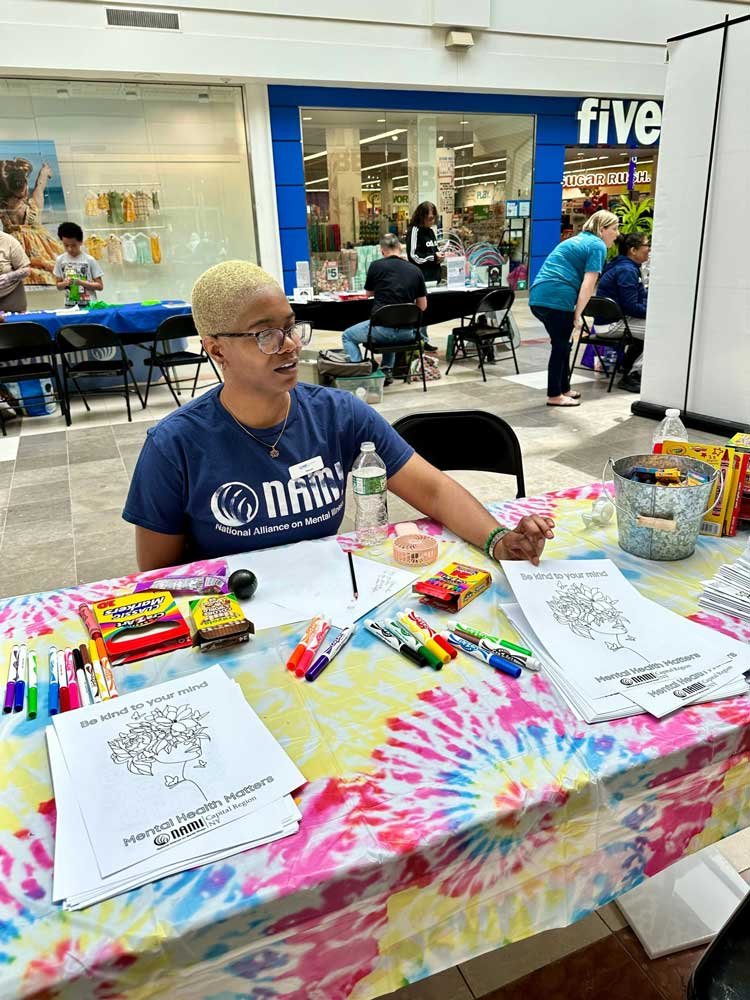
Shoutout is all about shouting out others who you feel deserve additional recognition and exposure. Who would you like to shoutout?
I’m deeply grateful for the people, organizations, and experiences that have shaped my journey, each adding support, mentorship, and encouragement that solidified my path. My growth has been guided by courage and perseverance, embracing challenges and refining skills that I know make a lasting impact. Although adversity has touched nearly every part of my life, I remain committed to cultivating resilience, stability, and ongoing self-improvement. My dedication to mental health and wellness is central to my journey. Therapy has been a vital part of this, helping me unlearn limiting patterns and embrace a healthier, more fulfilling life. I began therapy in 2019 at Trinity Rising Counseling Center in Dallas, TX, with Tammarra Letbetter, who provided both insight and essential tools on this journey to becoming better. Her guidance has been invaluable.
NAMI (The National Alliance on Mental Illness) has also played a powerful role. As a volunteer and Model Ambassador with NAMI Capital Region NY and NAMI NYS, I completed both the Peer-to-Peer and Provider Education programs, allowing me to create spaces for growth and mutual support. Since being diagnosed with Adult ADHD in 2020, I have been committed to sharing my journey and empowering others navigating similar challenges. My personal wellness team, including an ADHD coach, Rooz Khosh of Heal and Thrive Psychotherapy & Coaching, has been instrumental in helping me manage thoughts, break unhelpful patterns, and find balance. Reiki sessions with Certified Meditation Instructor Edie Banker have further grounded me, easing my anxiety and anchoring me in peace.
Through volunteering with the American Foundation for Suicide Prevention Capital Region NY, I connected with L. Sheree Adams, MSN, PMHNP-BC, CIHMP, of Eunoia Wellness Collective in Albany, NY. Sheree has provided a safe and transformative space for me to explore my mental well-being, challenging my thoughts and decision-making for a healthier approach to life.
Another blessing in my journey has been ‘Hey Sis,’ a supportive community of women who meet weekly to uplift one another through prayer, shared experiences, and encouragement. Professionally, I owe a huge shoutout to mentors like Raheem Safir, whose insights have fueled my evolution as a leader, and to Dr. Pamela Gurley, the visionary behind Bl@ck Girl Activist: A Shift in Social Change, who taught me the power of vulnerability and authenticity in writing. I walk a unique and transformative path, and I’m deeply grateful to each person who has supported me on this journey of growth and reconnection with my true self. Their patience and compassion have meant everything to me as I’ve navigated and reassembled the challenging parts of myself, shedding habits and mindsets that no longer serve my greatest good. Thank you to each mentor who has played a role in my journey—I wouldn’t be here without them. Each of these connections has profoundly shaped my resilience, growth, and vision, and I’m immensely thankful for such a powerful network of encouragement and inspiration.
Instagram: https://www.instagram.com/iamteeweezie/ & https://www.instagram.com/teeweezie.foodiefavs
Linkedin: https://www.linkedin.com/in/tessinasw/
Twitter: https://twitter.com/iAmTeeWeezie
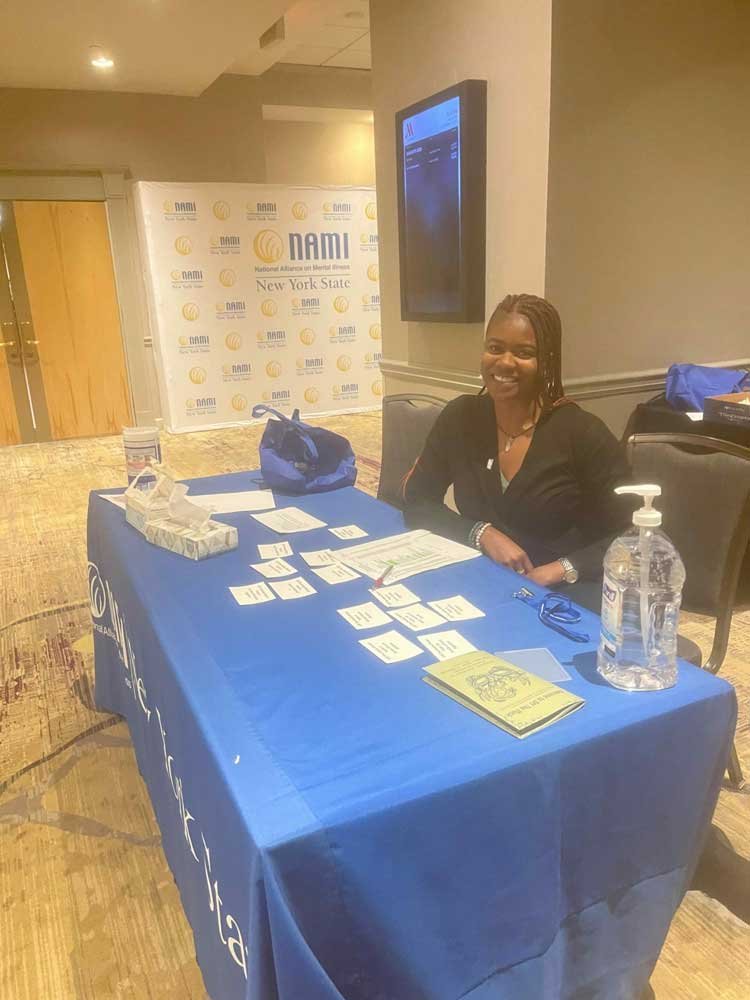





Image Credits
The three professional photos was taken by Tyiesha Ford, owner of Fullness of Joy Photography. All others of my personal device.
Have you ever started your day determined to tackle your to-do list, only to end it feeling like you’ve barely scratched the surface? Maybe you’ve been busy all day, yet the important tasks are still waiting to be done. It’s frustrating, right?
But here’s the thing—managing ADHD doesn’t mean you have to struggle. You can take back control of your life, and the good news is, you don’t have to do it alone.

You may be familiar with therapy or counseling, but have you heard of ADHD coaching? That’s an entirely different scenario.
ADHD coaching offers a practical and engaging method for navigating life with ADHD. Coaching emphasizes the present moment rather than delving into emotions or past experiences, which is often the focus in therapy. It’s focused on discovering practical approaches to assist you in overcoming everyday obstacles—such as effectively managing your time, maintaining organization, and successfully completing your tasks.
Consider it from this perspective:
Both methods hold significance, yet ADHD coaching emphasizes progress and moving ahead. Focusing on solutions is key—not getting stuck on past mistakes, but exploring how to approach things differently in the future.
For a long time, I experienced a continuous loop of irritation. Each morning, I would rise with ambitious intentions to organize my life. However, by midday, I found myself lagging. By the time dinner arrived, I would feel a sense of defeat.
The issue wasn’t a lack of effort on my part; rather, it stemmed from not having the appropriate tools or strategies in place.
My journey with an ADHD coach marked the beginning of unexpected transformations in my life. Here’s what I discovered—and how it might benefit you as well:
1. Conquering Daunting Tasks Without Becoming Stuck
One of the most challenging aspects of ADHD is facing a large task and feeling overwhelmed by the thought, “I can’t possibly accomplish all of that.” The feeling of being overwhelmed can prevent you from taking the first step.
My coach showed me how to divide large projects into smaller, easier-to-handle segments. Instead of overwhelming myself with the thought of cleaning the whole house, I would concentrate on just one room or even a single corner. After achieving that minor success, I would continue to expand on it.
2. Discovering Effective Time Management Systems

Conventional suggestions such as “simply utilize a planner” have never been effective for me. Through coaching, I found strategies that resonate with my ADHD brain, such as the Pomodoro technique. I would establish a 25-minute timer to focus on one task, followed by a 5-minute break. This straightforward approach helped me maintain focus and avoid exhaustion.
3. Creating Adaptable Habits That Last
Following rigid routines has always seemed unattainable for me. My coach assisted me in developing routines that were organized sufficiently to maintain my focus, yet adaptable enough to respond to my energy levels. For instance, rather than scheduling each hour of my day, I would designate themes for each day (such as “work tasks” or “errands”).
4. Embracing the Joy of Small Achievements
When dealing with ADHD, it’s common to concentrate on what remains unfinished. Coaching has shown me how vital it is to acknowledge achievements, no matter how small, like marking off a single task from my to-do list. Each advancement matters.
ADHD coaching isn’t just a concept—it delivers results. Here are some real-life stories of how my clients transformed their lives with coaching:
Lisa, a marketing professional, felt paralyzed every time she looked at her workload. Deadlines would pile up because she just didn’t know where to start.
Through coaching, we worked on setting small, manageable goals. Lisa started using a timer to focus on tasks for short periods. Gradually, she built momentum and learned how to prioritize her tasks without becoming overwhelmed. Today, Lisa consistently meets her deadlines and feels less anxious about her to-do list.
Michael, a college student, struggled to keep up with assignments and often missed deadlines because he’d forget what needed to be done.
With coaching, Michael started using a simple digital planner and setting weekly reminders. He also learned how to break assignments into smaller steps, which made studying less daunting. Now, Michael has improved his grades and feels confident in his ability to manage his time.
If you’re looking to better manage your ADHD, here are some tools and strategies you can try:
Remember, finding the right tools is a process of trial and error—experiment to see what resonates with you.
1. What distinguishes ADHD coaching from therapy?
Therapy explores emotional hurdles, whereas coaching emphasizes practical strategies for everyday living.
2. Who stands to gain from ADHD coaching?
Coaching for ADHD is beneficial for individuals facing challenges with concentration, organization, or managing their time effectively.
3. What is the timeframe for observing outcomes?
Numerous individuals observe enhancements in just a few weeks, yet enduring transformation requires consistent effort.
4. Is ADHD coaching exclusively for adults?
Absolutely not! Children and adolescents can gain advantages as well. Coaching strategies are customized to align with their developmental stage and specific requirements.
5. Can ADHD coaching serve as a substitute for medication?
No—coaching complements medication and other treatments to form a holistic support system.
Coexisting with ADHD doesn’t have to feel like chaos. With the right tools and support, you can develop systems that cater to your needs, boost your confidence, and regain control of your life.
Take the first step today! Check out related articles like:
I’m offering a free consultation to help you start this transformative journey. Together, we’ll create a tailored plan to help you thrive.
You’re not alone—let’s start this journey together.
Managing time can feel overwhelming, especially if ADHD is part of the picture. Missed deadlines, endless to-do lists, and that constant nagging feeling of “I should’ve done this earlier” are all too familiar. But you know what? You’re not alone—and you’re not doomed to live in chaos.
The truth is, ADHD brings unique challenges to time management, like time blindness, difficulty focusing, or impulsivity. But it also comes with strengths—like creativity, out-of-the-box thinking, and energy. By learning to work with your brain instead of against it, you can conquer the clock and even have some fun doing it.
At Heal and Thrive Psychotherapy & Coaching, we’ve helped countless individuals with ADHD transform their schedules—and their lives. Ready to take control of your time? Book your complimentary consultation today.
Let’s dive into 10 practical, ADHD-friendly strategies that will help you regain control of your time, reduce stress, and unlock your full potential.
How often do you think, “Wait, where did the last hour go?” For many people with ADHD, the concept of time can feel… slippery. This is called “time blindness,” and it’s one of the most common hurdles to managing a schedule.
The key? Making time visible. When you can see time passing, it becomes easier to prioritize tasks, stay on track, and avoid the dreaded last-minute scramble.
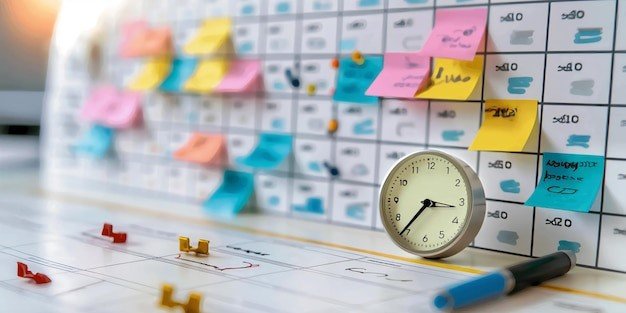
Pro Tip: Combine visual aids. For example, use a whiteboard to map out your weekly goals, then schedule tasks into a digital planner with reminders.
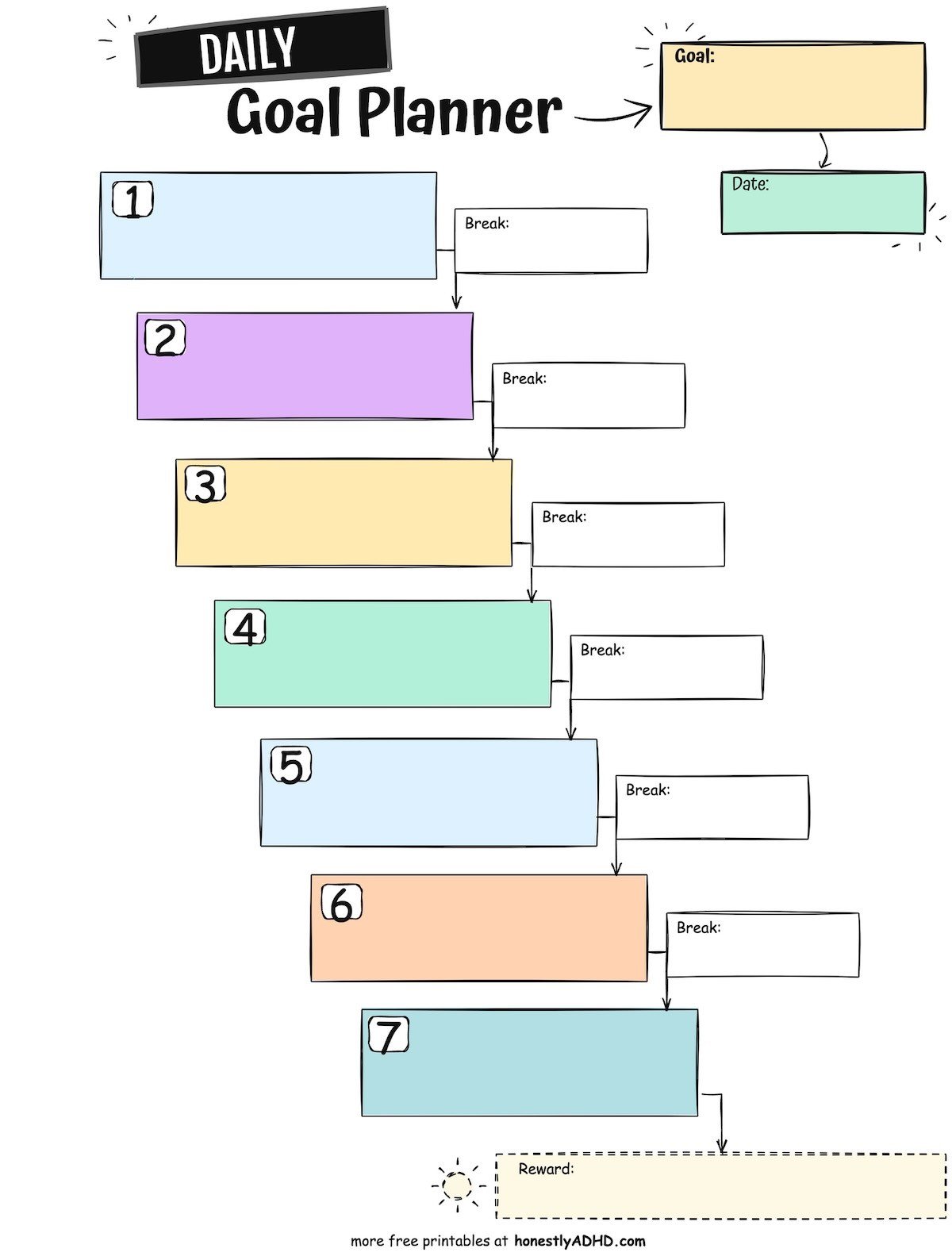
Have you ever looked at a massive project—like cleaning out your garage or writing a report—and immediately felt paralyzed? Big, unstructured tasks can feel overwhelming and impossible to tackle. Breaking them into smaller, bite-sized steps can make all the difference.
Example: Organizing Your Desk
Let’s say your goal is to tidy up your desk. Instead of thinking, “I need to organize everything,” break it into smaller tasks:
Pro Tip: Reward yourself after completing each step—whether it’s taking a short break, grabbing a snack, or listening to your favorite song.
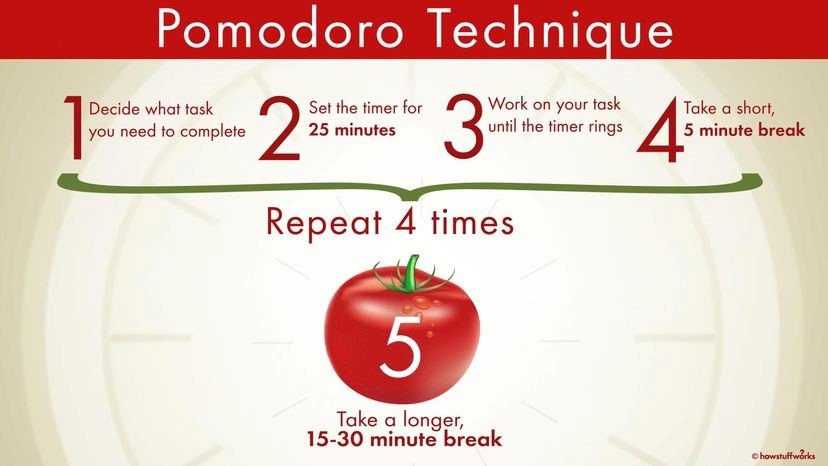
Focus can be a fleeting thing when you have ADHD. That’s why the Pomodoro Technique is a lifesaver. It breaks your work into manageable intervals, which can help you stay engaged without feeling drained.
Pro Tip: Use apps like Forest (grow virtual trees while you stay focused) or Focus Booster to track your work intervals.
Forgetting things is practically an ADHD superpower. But forgetting important tasks or deadlines doesn’t have to derail your day. Smart reminders can keep you on track.
Pro Tip: Batch similar tasks into a single time block. For example, set aside 30 minutes to tackle emails instead of scattering them throughout the day.
A consistent routine isn’t about being rigid—it’s about building a rhythm that reduces decision fatigue and makes your day flow more smoothly.
“Curious if coaching could help you build consistent routines and achieve your goals? Take our quick Are You Ready for Coaching? assessment to find out!”
A cluttered space can lead to a cluttered mind. By creating a clean, organized workspace, you’ll reduce distractions and boost your ability to focus.
Pro Tip: Keep fidget tools nearby if you’re prone to fidgeting—they’re great for releasing energy without losing focus.
Boring tasks are the ultimate focus killers. But turning them into a game can make them fun and engaging.
Having someone to check in with can help you stay motivated. Whether it’s a friend, a coach, or a group, accountability makes a huge difference.
Testimonial: “One of our clients, Sulema, shared this about her coaching experience: ‘Rooz’s coaching approach is clear and exceptionally encouraging. He guided me to overcome procrastination and build lasting habits.’”
ADHD often comes with emotional hurdles like anxiety, perfectionism, or self-doubt. Addressing these feelings is key to improving time management.
For more insights, check out our blog: My ADHD Journey and Revenge Bedtime Procrastination.
Every step forward, no matter how small, is worth celebrating. Recognizing your progress reinforces good habits and builds confidence.
Ready to Take Control?
At Heal and Thrive Psychotherapy & Coaching, we’re here to guide you every step of the way. Click here to book your free consultation now!
Have you ever noticed how your inner voice can sometimes be your harshest critic, especially when managing symptoms of ADHD? This internal dialogue can profoundly influence our thoughts, emotions, and behaviors. But what if we could transform this inner voice into our greatest ally? Negative self-talk can reinforce the stigma around ADHD, making it harder to seek help or feel understood. It can distort how we perceive our capabilities, locking us into a cycle of self-doubt and frustration. By reprogramming our internal conversations, we can shift from self-criticism to self-support, opening new pathways for personal growth and effectiveness.
Imagine an individual with ADHD who found themselves frequently misunderstood and criticized from a young age. The constant feedback of “you’re wrong” or “just focus” had embedded a narrative of inadequacy in their mind. This narrative followed them through their early school years into adulthood, shaping a pervasive sense of personal failure.

The turning point came when this person started receiving coaching specifically tailored for individuals with ADHD. Their coach introduced them to structured methods of managing their day-to-day tasks, which was crucial. More importantly, the coach emphasized the power of self-talk. They learned to recognize how their internal narrative shaped their reality and were taught techniques to transform this narrative from critical to supportive.
With coaching guidance, they began to adopt positive affirmations. Each session, they would discuss the challenges of the week, and for every negative experience, the coach helped them reframe it into a learning opportunity. They practiced phrases like “I am learning,” “I am improving,” and “I am resilient.” Slowly, these affirmations became part of their self-talk repertoire, replacing the older, critical voice.
As their mindset began to shift, they also engaged in reflective practices recommended by their coach. They kept a journal where they wrote down their daily affirmations and reflected on their feelings and reactions to different situations. This practice helped deepen their understanding of how their thoughts influenced their emotions and behaviors, leading to more conscious and positive self-engagement.
This shift in self-talk had a profound impact on their life. With a newfound belief in their capabilities, they started to embrace opportunities that they had previously avoided due to fear of failure. They began to volunteer for challenging projects at work, joined a public speaking club, and even started mentoring other individuals with ADHD. Each success further reinforced their positive self-perception, creating a virtuous cycle of confidence and achievement.
Research shows that positive self-talk can significantly alter the neural pathways in the brain, leading to improved emotional regulation and attention management—key challenges for those with ADHD. The transformation witnessed in the individual I know is a testament to the power of changing one’s internal dialogue, a finding supported by extensive clinical research. Neuroscientific studies have shown that consistent positive self-talk can enhance the brain’s executive functions, crucial for managing ADHD symptoms such as impulsivity and inattention.
To start transforming your self-talk:
Positive self-talk can be a game-changer for those managing ADHD. It not only helps in mitigating the emotional impacts but also empowers individuals to take control of their life narrative, transforming perceived limitations into platforms for success. By adopting a more supportive internal dialogue, individuals with ADHD can reduce their stress levels and improve their ability to concentrate, ultimately enhancing their quality of life.
Your internal dialogue shapes much more than just momentary moods—it influences your entire approach to life. By fostering a positive narrative, especially when dealing with ADHD, you create a more supportive mental environment for managing daily challenges and achieving personal growth. The journey of transforming self-talk is ongoing and requires dedication, but the benefits it brings are profound and lasting. I will leave you with a quote from Bruce Lee: “Don’t speak negatively about yourself, even as a joke. Your body doesn’t know the difference. Words are energy and cast spells, that’s why it’s called spelling. Change the way you speak about yourself and you can change your life. What you’re not changing, you’re also choosing.”
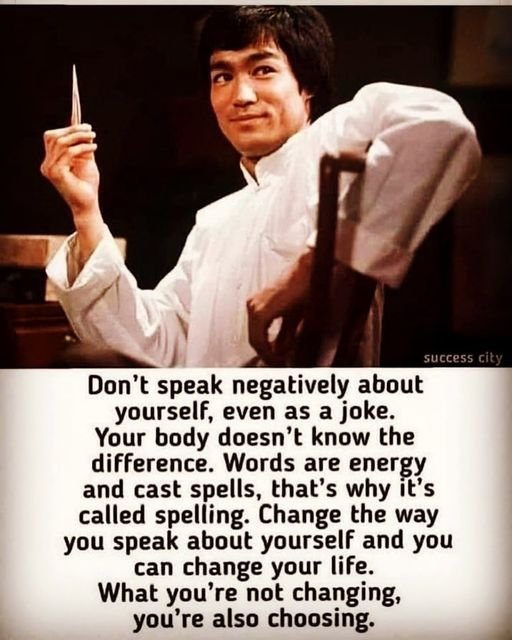
Let me share a recent experience that highlights the deep-seated feelings of shame that many of us with ADHD battle regularly. Today, I chose to spend quality time out, enjoying a simple day. Yet, despite the occasion, a persistent unease plagued me throughout the morning, morphing into a gnawing sensation in my stomach as I wandered through a store afterward.
“Why am I feeling this way? What’s wrong?” I questioned myself amidst my errands. This introspection revealed a familiar yet unwelcome emotion—shame, rooted deep in my childhood memories of reprimand and punishment. The thought nagged at me: “Is it selfish to take a day off? Shouldn’t I be working?” Recognizing the source of my discomfort didn’t immediately dissolve it, but it allowed me to challenge and reframe my thoughts each time they resurfaced.
ADHD often comes with a heavy dose of self-criticism. Many of us find ourselves ensnared in negative self-talk, feeling like perpetual underachievers or constant disappointments to others. Discussions on ADHD and self-esteem issues shed light on why feelings of inadequacy are so prevalent. More information can be found on ADDitude Magazine’s discussion on ADHD and self-esteem.
But it’s crucial to remember: Having ADHD does not reflect your worth or capabilities. It’s merely one aspect of your broader persona, not a full measure of your identity. With the right approach and tools, thriving is not just possible—it’s achievable.
Instead of dwelling on past errors or missed opportunities, focus on setting achievable goals. Whether it’s completing a daily task or reaching a small milestone, acknowledge and celebrate each success to build a positive momentum. Each step forward, no matter how small, is a victory. Discover more about goal-setting strategies for ADHD from Psychology Today’s article on goal-setting with ADHD.
It’s easy to succumb to the despair that shame and guilt can foster, but remember, you possess the strength and resilience needed to surmount these challenges. You’re not alone in this journey—many have walked this path and found ways to live fulfilling lives despite the hurdles ADHD presents.
Once upon a time, a child named Vashti felt she couldn’t draw, but her teacher encouraged her just to make a mark and see where it takes her. This small act led to a journey of self-discovery, showcasing that it’s not about creating the perfect art piece but rather about starting and seeing where it leads. This story from “The Dot” by Peter H. Reynolds is a perfect metaphor for anyone striving to overcome the shackles of perfectionism. Here is a link to the video/story.
As an ADHD coach, life coach, and someone who is neurodivergent, I’ve navigated my fair share of challenges. One of the most significant hurdles was overcoming perfectionism, which often clouded my ability to see and celebrate my achievements. Today, I want to share more about my personal journey with perfectionism and the liberating shift towards embracing excellence.
Growing up in two different countries presented unique challenges, especially when it came to writing. Navigating through the complexities of both English and Farsi, I struggled with grammar and spelling in both languages. This struggle was compounded by what I now recognize as undiagnosed dyslexia. While I always had a wealth of ideas swirling in my mind, the act of putting them down on paper was daunting. I would often lose track of punctuation, misspell words, or even forget key parts of a story. There were times when I meant to attach an important email, and I’d realize too late that I had forgotten.
These repeated mistakes fed into my perfectionism. I became overly critical of every word I wrote, fearing judgment and misunderstanding from others. This self-imposed pressure didn’t just affect my academic performance; it seeped into my personal life, where the fear of making mistakes made me hesitant to express my thoughts freely.
Inspired by “The Dot” by Peter H. Reynolds, I learned a valuable lesson about creativity and growth. The story of a young girl who discovers her artistic talent by bravely making a mark on a blank page resonated deeply with me. It reminded me that sometimes, the simple act of starting—imperfectly but boldly—can lead to unexpected and beautiful journeys. Just like the girl in the story, I learned that making your mark, however imperfect, is far more valuable than waiting for the perfect moment.
The Pitfalls of Perfectionism
For those of us with ADHD, perfectionism isn’t just about being detail-oriented; it’s a burdensome quest for flawlessness that can paralyze us. This constant striving for the unreachable can rob us of the joy found in our achievements and the lessons from our failures.
Excellence, unlike perfection, is attainable and sustainable. It encourages continuous improvement and growth without the unrealistic expectation of flawlessness. By aiming for excellence, we learn to appreciate our journey, acknowledging that each step forward, no matter how small, is a victory.
Set Realistic Expectations
Understanding that perfection is an unrealistic goal is crucial. Defining what excellence means to you in various aspects of your life can help set achievable objectives.
Mistakes should be seen as opportunities for growth. Each error provides valuable insights that can lead to significant improvements. Embracing these moments can transform your approach to challenges and enhance your learning. For more on learning from mistakes, check out this article.
Being gentle with yourself is essential. Remember, it’s okay to have limitations. Treating yourself with kindness and understanding can significantly impact how you tackle challenges. For more on Practice Self-Compassion, check out this article.
Focus on making progress, celebrating each step forward. This mindset shift is vital for long-term success and can alleviate the pressure that comes with trying to achieve perfection. My first ADHD Coach shared a memorable quote: “I’m not here to be right, I’m here to get it right.” This phrase, originally from Brené Brown, struck a chord with me, and I’ve since made it the wallpaper on my computer. It serves as a daily reminder to focus on making progress rather than striving for perfection. This mindset shift is crucial, especially for those of us managing ADHD, as it emphasizes the importance of celebrating each small victory on the path to long-term success.
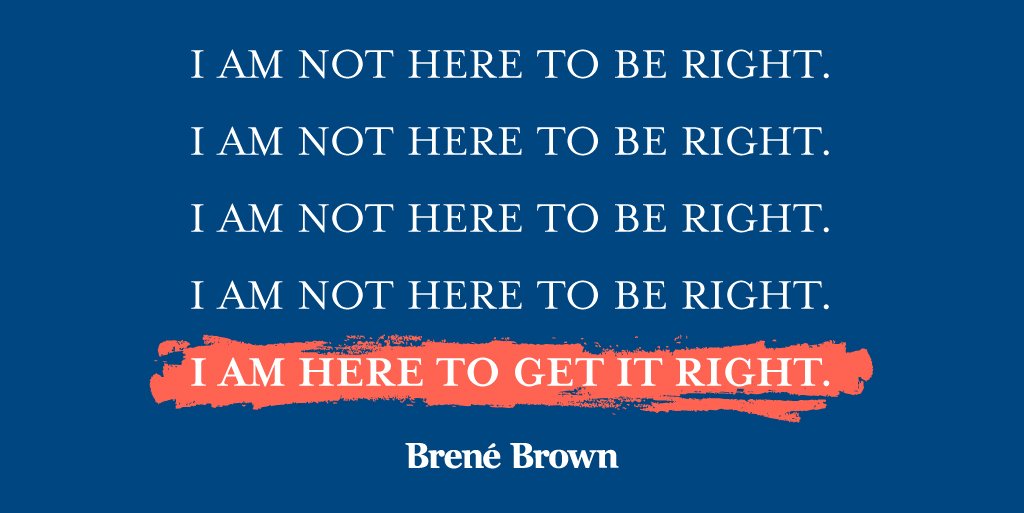
Building a support network of friends, family, or professionals can provide the necessary encouragement and perspective. Sharing your experiences and challenges with others who understand can be incredibly supportive.
Shifting from perfectionism to excellence isn’t just about changing how you work; it’s about changing how you view yourself and your achievements. As an ADHD and Executive Function Coach life coach, I’ve seen firsthand how embracing imperfections and focusing on continuous improvement can lead to fulfilling and successful experiences.
If you’re struggling with perfectionism and need support, remember I’m here to help you excel in the areas that matter most to you. Don’t hesitate to reach out for a journey toward excellence filled with growth, progress, and self-compassion.
ADHD offers a variety of difficulties for families with young children. These challenges include the need to manage impulsive behaviors and the demand to find strategies to maintain emotional regulation. When our children are experiencing high levels of anxiety, overstimulation, emotional dysregulation, Rejection Sensitivity Dysphoria (RSD), etc., an area that is specifically designed for relaxation and stress reduction (calm corner), which is commonly referred to as a calming corner, can be extremely helpful.
The term “Calm Corner” refers to a space designed to promote relaxation and reduce stress or anxiety. Children can learn to manage overwhelming sensory experiences by using a calm corner. The calm corner offers a space to retreat and not be stimulated while experiencing, expressing, or recovering from their emotions. This space is furnished with a range of instruments, such as soft lighting, comfy chairs, and toys that engage the senses, offering opportunities for grounding skills.
This space offers a safe haven to refuge from chaos and overwhelming feelings. If one can concentrate on learning as needed or regulate one’s mood and emotions, it would offer the opportunity to express one’s emotions without being judged by those who may not understand.
Compared to other locations, these areas have an excellent impact on reducing hyperactivity and significantly improving concentration. Children can gain skills in appropriately managing their responses to stress within a controlled environment.
Here is a list of items you may consider adding to your calm corner:
A great idea is to have your child participate in creating the calm corner. Their participation and buy-in are crucial to this success.
Recently, I had a jam-packed weekend that tested my ADHD knowledge as a coach and parent. We threw a lively family event with over 20 guests without days off. The following day was Mother’s Day, which has been especially hard since my mom passed away 7 years ago. This made the day more emotional, especially since I had to handle a difficult situation with my ADHD-afflicted six-year-old daughter.
As an ADHD dad, I forgot to prepare my wife’s Mother’s Day gift, so at the last minute, I asked my daughter to help me prepare the gift! Since we were celebrating my wife’s side of the family’s Mother’s Day at our house, the guests had started opening the gifts without my daughter being at the table! Missing her mom’s and grandmother’s gift opening caused her a major meltdown. She struggles to manage emotions at her age because her executive function skills are still maturing. She and her family felt emotionally exhausted that day. I was fatigued by the end. Even after a long weekend, I didn’t want to sleep. Commitments and heavy emotions had consumed my weekend, leaving me desperate for personal time. Normally, around 10:30, our Alexa notifies me that it’s time to go to bed. Once I heard Alexa go off, I looked at the watch and continued scrolling like nothing was going on. Around 12:30, I started to notice that I was having a hard time going to bed. I paused, pondered, and I asked myself. What am I doing?!?
Of course, I was struggling with revenge procrastination! Revenge bedtime procrastination is more than just poor sleeping habits. It’s a cry for assistance, reflecting the lack of personal time and mental breaks throughout the day or weekend. Unfortunately, this results in a vicious cycle of sleep deprivation, which affects our assistance and exacerbates ADHD symptoms!
I had to remind myself of the tools and tactics I teach as I stayed up late browsing through my phone. This personal challenge underscored the importance of practicing what we preach. To handle the situation, I used the inventive tools I recommend:
Visual and Auditory Assistant: I utilize my ALEXA to make my environment sleep-friendly. ALEXA sets a reminder every night around 10:30 pm: “Roozbeh, it’s time for bed!” It starts playing relaxing music and, lastly, dims the lights, reminding me that it is time to go to bed!
Guided Nightly Meditations: Some apps, like “Calm,” could offer a variety of guided meditations focused on themes such as releasing the day’s stress, gratitude, or preparing for sleep. These sessions can vary in length to accommodate different schedules, from quick 5-minute relaxations to deeper 30-minute sessions.
Bedtime Stories for Adults: Following the model of apps like Calm, Evening Ease can include bedtime stories designed for adult listeners. These stories, read in soothing voices, can transport the listener away from the day’s stresses and into different worlds, easing them into sleep.
This weekend showed us that while we can’t control our days, we can control our nights. These techniques helped me healthily recover my personal time, reaffirming the value of self-care, especially for those of us with ADHD who are grieving huge losses like a loved one.
Recession—what a scary word! I wonder when you hear that you become frightened, fearful, and worried; you wonder what you’re going to do and how you’re going to survive. One of our basic instincts is survival, and a part of our survival in today’s world is being able to provide for ourselves. And recession, or lack of financial security, is the main thing, right? We won’t be able to provide for ourselves the way we need to. The money that you work so hard for does not extend as far as it needs to. So the recession is real, and it can be scary. I will tell you that. However, we are in a unique position to prepare for it. So it’s important to understand what happens to you when your basic survival is in danger. So when we were, you know, cavemen and women and so on, cave people, let’s say, we needed to survive, and we needed to be able to use our resources and manage threats.
So, evolutionary speaking, we develop the ability to feel anxious, nervous, alert, hypervigilant, and ready to act when our survival is in danger, as well as remember the times when we have experienced situations where our survival is in danger. So if in our history we had drought, we would be sensitive when there wasn’t, when we’re seeing a pattern of food scarcity. So biologically speaking, evolutionarily speaking, we have already established defense mechanisms internally that we use to react to the potential danger of not being able to provide for ourselves. And we remember the times when we didn’t have what we needed, whether it was due to a lack of financial stability growing up, whether it was personal or cultural, whether it was historical, whether you grew up in an environment or in a family that struggled to provide or went through the 2008 recession, etc.
So the point is that we have this memory of what that was like. So it’s very natural for you to get that anxiety. But if you were to think of this anxiety as an alarm system, think of it as telling you something. Then you’re able to start to plan ahead and use your rational mind to make changes so that you can protect yourself. So the first and most important strategy is to acknowledge the anxiety as a defense mechanism to assure your survival, rather than a crippling symptom that gets in the way. It’s important to acknowledge the anxiety as a fear based on history, but not as a helplessness that you’re experiencing right now. If you are able to see anxiety as an alarm, then you can be queued in and start to make choices that will protect you from this possible danger, such as recession or not being able to provide for yourself. The money you make is not enough. Oftentimes, when we feel anxiety, which is an autonomic nervous system response, like I said, it’s based on history and your intuition based on your nature. We forget to pay attention to the logic, right? We feel the anxiety, we go into panic, and then we allow the emotions to take over. At that point, we can solve problems. We can come up with solutions. However, if instead we take the anxiety as an alarm, as a, you know, hey, something’s going on, we feel the fear and say to ourselves, It’s okay, I have time, I have resources, I have abilities. This is something I can now change. Then we can calm ourselves and then start to strategize on how to survive the recession that is coming.

